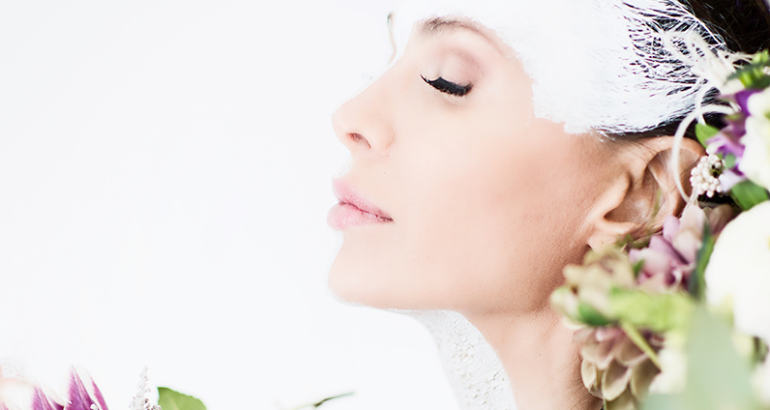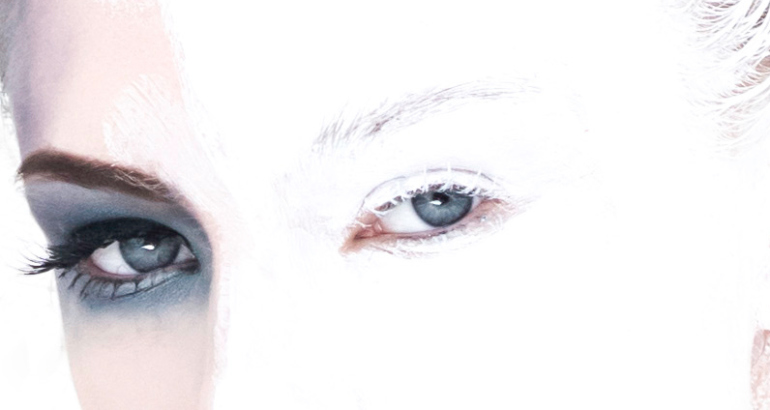by Skincare Specialist, Louné Maree
The skin is the body’s largest organ. It serves as a protective shield against heat, light, injury, and infection, and with winter approaching fast, we can anticipate a change in all of the above. Considering this, what does your skincare routine look like in winter? Are there any changes you can make to ensure your skin stays healthy and radiant in the cooler months?
As seasons change, our skin also experiences change. For example, with cooler temperatures and low humidity in winter, our skin can become very dry and dull due to the dry air that draws moisture from the skin. This can lead to cracking and irritation. But it can be avoided!
In this blog, we will cover all basis for optimal winter skincare, sharing our secret tips and tricks to help achieve and maintain healthy, radiant skin.
Let’s cover my top 10 essential winter skincare tips for radiant and glowing skin all season long.
Table of contents
- MOISTURISE APPROPRIATELY TO PREVENT SKIN DRYNESS
- PROTECT YOUR SKIN FROM THE SUN’S RAYS
- USE A HYDRATING LIP BALM TO NOURISH YOUR LIPS
- AVOID HOT SHOWERS/BATHS; THEY STEAL NATURAL OILS
- EXFOLIATE TO GET RID OF DEAD SKIN
- CHOOSE YOUR SKIN PRODUCTS CAREFULLY
- STAY HYDRATED FOR HEALTHY SKIN
- EAT YOUR WAY TO SKIN RADIANCE
- AVOID AIR CONDITIONERS AND HEATERS
- VISIT A SKINCARE EXPERT FOR WINTER SKIN TLC
- FINAL THOUGHTS ON WINTER SKINCARE
1. MOISTURISE APPROPRIATELY TO PREVENT SKIN DRYNESS
Hydrate, Hydrate, Hydrate!
Whether you have dry, oily, or combination skin, keeping your skin hydrated is crucial for your winter skin routine, as water does evaporate through the skin. If you already suffer from dry skin, now is the time the stock up on a rich hydrating moisturiser (Hydrating Crème from ZO Skin Health) and perhaps a leave-on-mask, for those nights your skin feels tight and extremely dry (Power Firm Mask from QMS Medicosmetics).
The same applies to those with oily or combination skin. Yes, you have an oily skin type, but you could suffer from superficial skin dehydration which can cause hyperkeratinization, which in turn results in poor skin texture. In basic terms, your skin is lacking water, not oil. Hydra-Vital Light from Mesoestetics, for example, is a lightweight moisturiser that will give you enough hydration but still regulate oil production.
In summary, we all need to hydrate our skin with topical humectants, such as hyaluronic acid, glycerin, and urea, especially during the winter months.
2. PROTECT YOUR SKIN FROM THE SUN’S RAYS
Do not underestimate the UV rays that still reach the skin even during cooler months. UV rays, better known as ultraviolet radiation, are invisible light that can cause sunburn over short-term exposure while premature ageing and skin cancer are side effects of prolonged UV exposure.
Over and above sun exposure, we tend to forget that we are exposed to blue light every day without even stepping out of the house. Blue light is emitted from most electronic devices, and this can cause DNA damage to skin cells, causing them to shrink and die. Definitely, something we want to avoid!
In conclusion, apply a broad-spectrum SPF every single day even if you work indoors. Check out Heliocare’s range of SPF products, there is something for every skin type!
3. USE A HYDRATING LIP BALM TO NOURISH YOUR LIPS
While some of us experience dry/cracked lips throughout the year, there are some of us who only struggle with chapped lips during winter. Besides the colder weather, there are other factors that can also lead to permanent lip dryness or chapped lips, such as excessive licking of the lips and certain medications like vitamin A.
When looking for a good lip balm it is important to avoid ingredients such as Menthol, Lanolin, or artificial fragrances and flavourings, as these can also cause the lips to become irritated and dry. Rather look for lip care ingredients like shea butter, white petroleum jelly, and ceramides.
If you’re looking for something a little more intensive to also treat an aging lip, have a look at the Stem Cell Nanofiller Lip Contour by Mesoestetic. A highly recommended anti-ageing lip cream that defines and smooths the skin around the lip area for a more rejuvenated appearance.
4. AVOID HOT SHOWERS/BATHS; THEY STEAL NATURAL OILS
Yes, it’s winter and we all love taking long hot showers and baths, but your skin does not love it as much as you might. Using hot water on the skin removes the natural oils we need for the skin to feel soft, supple, and moisturised, leaving the skin feeling dry and itchy. This is an invitation to a variety of skin problems, as hot water disrupts the skin’s barrier (outermost layer of the skin) resulting in skin that cannot function at an optimal level.
Lukewarm water is advisable to wash your face with, but if you can endure using cold water, even better! The benefit of using cold water includes increased blood flow to the skin that will deliver the necessary nutrients the skin requires to defend itself and in doing so, not only fight breakouts and dryness but also the early signs of ageing.
5. EXFOLIATE TO GET RID OF DEAD SKIN
Exfoliating is the process of removing dead skin cells from the surface of the skin known as the stratum corneum situated on the outermost layer of the epidermis. With young, plump skin this cell turnover takes place more or less every 28 days, but as we age this process slows down. When the dead skin cells do not shed off completely, this can result in dry, flaky, and clogged pores. To prevent this from happening we need to exfoliate 2 – 3 times a week.
There are different methods of how we can exfoliate. Respectively these are physical exfoliators and chemical exfoliators.
Physical exfoliators or scrubs are those which contain grains that manually buff away the dead cells. When using scrubs, patients can sometimes over-scrub their skin as the exfoliator may be too abrasive. This can lead to micro-tears in the skin which comes with its own list of skin concerns we want to avoid.
My favourite skin sloughing product is a chemical exfoliator. They are formulated with acids, such as alpha-hydroxy acids or beta-hydroxy acids. They can be left on the skin normally for 10min then removed with lukewarm water. If you can keep this up you will improve your skin’s texture, minimise the appearance of large pores, prevent breakouts, and enable sufficient product penetration.
Before adding an exfoliator to your regime, thought, first consult with your skin specialist to see which one will suit your skin best.
6. CHOOSE YOUR SKIN PRODUCTS CAREFULLY
Before running to the nearest store and grabbing whatever you think is suitable for your skin, first consult with an experienced skincare specialist. Nowadays, with social media being the new skincare product marketing platform, we see so many celebrities punting their favourite products leading to mass sales of products most likely not even intended for the skins of those who end up buying them… It is important to remember that we all have different skin types and skin conditions and will therefore respond differently to certain products.
Rather book yourself a professional skincare consultation where a qualified skincare specialist can recommend skin care products for your skin’s needs, and that will work best for your skincare goals and budget. If you are unable to have a skin consultation in person, try completing a comprehensive online skin assessment with a reputable skincare company to get good skincare product recommendations.
Why not try the Dr Nerina Wilkinson + Associates online store?
7. STAY HYDRATED FOR HEALTHY SKIN
Yes, you can fuel your skin with fluids.
Our bodies are made up of 60% water and our blood is made up of 90% water, therefore when drinking enough water, the cells in every part of your body gain hydration through the blood. Ideally one should aim to drink 6 – 8 glasses of water every day to maintain good moisture levels in the skin.
Other benefits of keeping the skin hydrated from the inside are:
• Improvement in skin elasticity
• Reduced puffiness
• Prevention of premature ageing by improving the appearance of fine lines
• Prevention of breakouts as water helps to flush toxins and bacteria
8. EAT YOUR WAY TO SKIN RADIANCE
Did you know that what you put in your mouth, “shows on your skin”? So, this winter you are (hopefully) not only going to incorporate a winter-specific skin care plan but also going to put your skin on a healthy skin plan diet.
When you follow a healthy diet plan, you can (for the most part) determine the outcome of your skin. Unfortunately, some foods can cause havoc on the skin especially when it comes to acne. Some studies have found that the food items such as white bread, pasta, sugary drinks, dairy, and fast/processed foods can trigger breakouts and eventually result in acne. If this is you, I would highly recommend you start making some dietary changes so that we can start to clean that skin from the inside out.
Since acne is an inflammatory condition focusing on eating an anti-inflammatory diet may play a big role in calming breakout-prone skin. With this, you might want to include healthy fats like omega-3 found in fatty fish like salmon, and consider incorporating zinc-rich foods such as eggs, avocados, and nuts, as well as spinach, peppers, and berries (which are all rich in antioxidants).
9. AVOID AIR CONDITIONERS AND HEATERS
Air conditioning removes moisture from the air, and when the air in the room is dry, it makes the skin drier by pulling water out of the skin. This can lead to trans epidermal water loss which means that water passively evaporates from the skin causing dry, itching skin due to the skin barrier being compromised. When the skin barrier is impaired, the skin is more vulnerable to damage from intrinsic and extrinsic factors and will therefore become rough and cracked.
If you find your skin becomes drier, more sensitive, red, and irritable during the winter season, we often find that air conditioners and heaters are involved.
Try to keep the thermostat at a low temperature and rather cover up with a scarf, gloves, and thermal wear.
10. VISIT A SKINCARE EXPERT FOR WINTER SKIN TLC
The cooler winter season is the best time of the year to do more aggressive treatments which require longer downtime (such as Lumecca IPL and the signature I-PEEL-L Bespoke). Due to the fact that UV rays are less invasive during the wintertime, this is a golden opportunity for you to try out the treatments that are normally not recommended by us during the warmer months.
If you are already on a skincare plan that you received from your skin care specialist and you just want to maintain your result, you can, for example, do treatments such as a bespoke chemical peel with a hydrating Crystal Fiber Mask by Mesoestetic (an in-clinic favourite) or QMS Medicosmetics hydrating facial once a month. This is ideal to keep up the skin’s health, and maintaining hydration, thus, avoiding a majority of common winter skin problems.
FINAL THOUGHTS ON WINTER SKINCARE
With the winter season ahead, we will have to start modifying our winter skincare routine by adding winter skincare essentials to keep the skin moisturised, protected, and healthy throughout the cold, drying, and skin-unforgiving season.
Remember to include your neck and chest in your skincare regime as this part of the body is prone to sun exposure and premature ageing and always needs a little extra skin TLC.
If you need some professional intervention for the ultimate winter skincare plan, contact our team of skincare specialists at Dr Nerina Wilkinson + Associates, and we will design a bespoke winter skincare plan specifically for your skin type, concerns, and goals!
Skincare Specialist, Louné Maree



